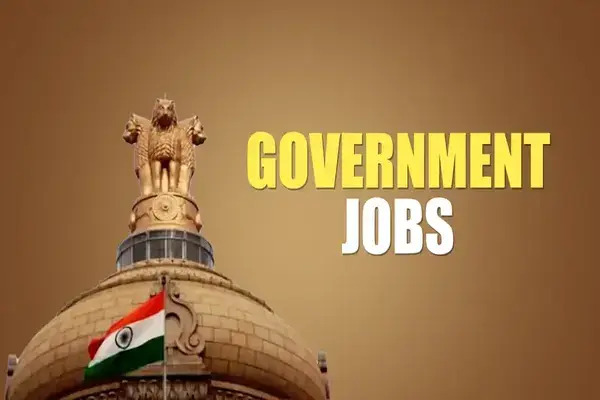Download Books, Notes and Study Material for KVS PRT (ENVIRONMENTAL SCIENCE) 2025 for Free. Stop paying for costly materials that provide no value, Instead download our targeted study material to streamline your preparation. We hope our material may help you in your journey to crack this exam.

KVS PRT Syllabus 2025 – Overview
| Conducting Body | Kendriya Vidyalaya Sangathan |
| Type of Post | PRT (Primary Teacher) |
| Total Posts | 16182 |
| Selection Process | Written Exam and Interview |
| Category | Syllabus |
| Offical Website | kvsangathan.nic.in |
KVS PRT (Environmental Science) Syllabus 2025
Perspectives on Education and Leadership :
(a) Understanding the Learner :
1. Concept of growth, maturation and development, principles and debates of development, development tasks and challenges
2. Domains of Development: Physical, Cognitive, Socio-emotional, Moral etc., deviations in development and its implications.
3. Understanding Adolescence: Needs, challenges and implications for designing institutional support.
4. Role of Primary and Secondary Socialization agencies. Ensuring Home school continuity.
(b) Understanding Teaching Learning :
Theoretical perspectives on Learning -Behaviorism, Cognitivism and Constructivism with special reference to their implications for:
(i) The role of teacher
(ii) The role of learner
(iii) Nature of teacher-student relationship
(iv) Choice of teaching methods
(v) Classroom environment
(vi) Understanding of discipline, power etc.
Factors affecting learning and their implications for:
(i) Designing classroom instructions,
(ii) Planning student activities and,
(iii) Creating learning spaces in school.
Planning and Organization of Teaching-Learning
(i) Concept of Syllabus and Curriculum, Overt and Hidden Curriculum
(ii) Foundational Literacy and Numeracy, Early Childhood Care and Education
(iii) Competency based Education, Experiential learning, etc.
(iv) Instructional Plans: -Year Plan, Unit Plan, Lesson Plan
(v) Instructional material and resources
(vi) Information and Communication Technology(ICT) for teaching-learning
(vii) Assessment of learning, for learning and as learning: Meaning, purpose and considerations in planning each.
Enhancing Teaching Learning processes: Classroom Observation and Feedback, Reflections and Dialogues as a means of constructivist teaching
(c) Creating Conducive Learning Environment :
1. The concepts of Diversity, disability and Inclusion, implications of disability as social construct, types of disabilities-their identification and interventions
2. Concept of School Mental Health, addressing the curative, preventive and promotive dimensions of mental health for all students and staff. Provisioning for guidance and counselling.
3. Developing School and community as a learning resource.
(d) School Organization and Leadership :
1. Leader as reflective practitioner, team builder, initiator, coach and mentor.
2. Perspectives on School Leadership: instructional, distributed and transformative
3. Vision building, goal setting and creating a School development Plan
4. Using School Processes and forums for strengthening teaching learning-Annual Calendar, time-tabling, parent teacher forums, school assembly, teacher development forums , using achievement data for improving teaching —learning, School Self Assessment and Improvement
5. Creating partnerships with community , industry and other neighbouring schools and Higher Education Institutes — forming learning communities
(e) Perspectives in Education :
1. NEP-2020: Early Childhood Care and Education: The Foundation of Learning ; Foundational Literacy and Numeracy; Curriculum and Pedagogy in Schools: Holistic & Integrated Learning; Equitable and Inclusive Education: Learning for All; Competency based learning and Education.
2. Guiding Principles for Child Rights, Protecting and provisioning for rights of children to safe and secure school environment, Right of Children to free and Compulsory Education Act, 2009,
3. Historically studying the National Policies in education with special reference to school education;
4. School Curriculum Principles: Perspective, Learning and Knowledge, Curricular Areas, School Stages — Pedagogy & Assessment.
Concerned Subject (Environmental Science) :
1. Democracy
2. Panchayat
3. Population Growth
4. Disease
5. Natural Calamities
6. Air
7. Water
8. Soil
9. Resources
10. Development
11. Map of India
12. Nation Freedom Movement
13. culture
14. Five yr Plans
15. Transportation
16. Communication
KVS PRT (Environmental Science) Exam Pattern 2025
KVS PRT
Type of Questions – Objective type
Medium of Examination- English/Hindi (Bilingual)
Duration : 180 Minutes
| S.No | Subject | No.of Question | Marks |
| Part 1 | English | 10 | 10 |
| Hindi | 10 | 10 | |
| Part 2 | General Knowledge & Current Affairs | 10 | 10 |
| Reasoning | 05 | 05 | |
| Computer Literacy | 05 | 05 | |
| Part 3 | Perspectives on Education and Leadership | 60 | 60 |
| Part 4 | Concerned Subject (Environmental Science) | 80 | 80 |
| Total | 180 | 180 |